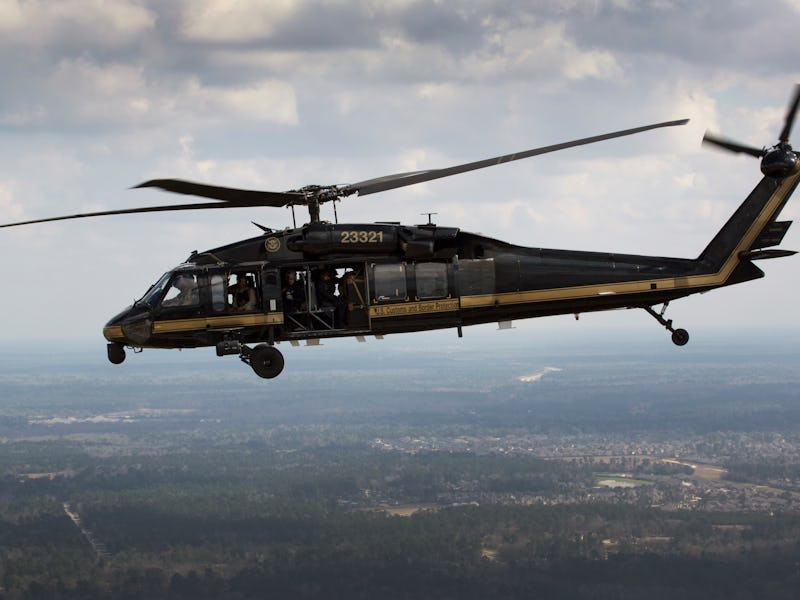On Sunday, Super Bowl 51 will bring the New England Patriots head-to-head against the Atlanta Falcons. While the action heats up on the ground, the Federal Aviation Administration and U.S. Customs and Border Protection will focus on the skies around the game. CBP will deploy Black Hawk helicopters to circle NRG Stadium in Houston, and the FAA has imposed a 34.5-mile airplane flight restriction in the stadium’s vicinity. It’s unfortunate news for anyone who was hoping to capture aerial footage of the crowd or sneak a free peek at the game: This temporary flight restriction includes drones.
These rules are similar to last year’s, which included a 32-mile radius flight restriction and a ban on drones within that area. In fact, Super Bowl 50 featured heavier air support than this year’s contest. Coast Guard helicopters and F-15 fighter jets patrolled the airspace around Levi’s Stadium in Santa Clara, California in 2016. The heavy air support may not have been totally necessary, though. Last year’s game saw four violations of the FAA’s notice, and besides the usual handful of arrests on the ground, there were no credible security threats, including the offending aircrafts.
Of course, the mere fact that no significant events occurred doesn’t convince law enforcement officials that security measures are unwarranted. “On the day of the big game, we will be here, but our presence may not necessarily be seen,” FBI assistant special agent in charge in Houston Mark Webster says in an FBI news article. There has been no news of credible terrorist threats to the big game on Sunday, but the eight $5.9 million Black Hawk helicopters will patrol the area nonetheless.
So while this year’s aerial security measures aren’t unprecedented, they do seem overkill. In fact, besides the usual disorder you can expect from drunken crowds, the crime that most reliably accompanies the Super Bowl happens on the ground: human trafficking. In recent years, the sporting event has become known as a hot spot for this activity, and grassroots organizations have been preparing to identify and assist victims. So, perhaps taxpayer funds would be better spent on the ground, helping victims of the sex trade, which is definitely active in Houston this weekend, and not in the air, where nothing will probably happen.
